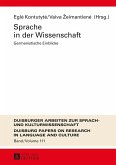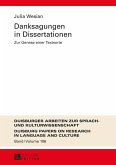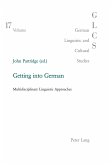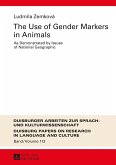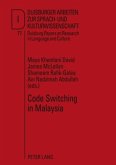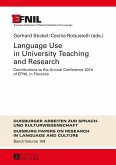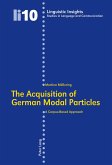While there are plenty of studies on the impact English has exerted on the German language, the reverse contact situation has been relatively neglected. This monograph sets out to shed light on the German influence on the English lexicon in the twentieth century. It provides the first systematic appraisal of the semantic integration and contextual usage of the words adopted from German in the past few decades. The results presented in this study are based on the evaluation of a comprehensive lexicographical corpus of 1958 twentieth century German borrowings retrieved from the Oxford English Dictionary Online. The present-day usage of the borrowings is illustrated with linguistic documentary evidence collected from a wide range of English language corpora.
«This book of Julia Schultz fills a gap in English lexicology. This work provides the first comprehensive research on the semantic integration of German borrowings into English and demonstrates that the former had a huge impact on the lexicon of the latter especially in the first forty years of the 20th century, although today it is common to emphasize only the influx of Anglicisms into German.»
(Caterina Saracco, Linguist List 2017)
Vollständige Rezension hier lesen
(Caterina Saracco, Linguist List 2017)
Vollständige Rezension hier lesen


